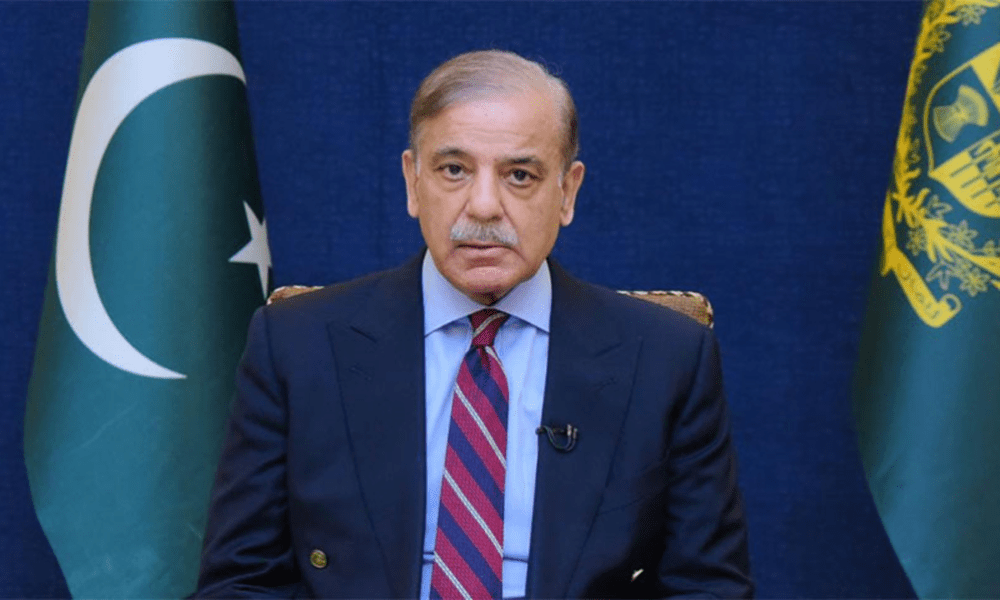Prime Minister Sharif to Review Housing Relief Package and Tax Reforms
The government has introduced a comprehensive relief package for the real estate and housing sector, aiming to provide economic support and incentives for homebuyers and investors.
The initiative, developed by an 11-member task force under the Ministry of Housing, includes significant tax revisions and strategic measures to revitalize the housing sector. The plan is expected to boost property development, encourage investment, and make homeownership more affordable for citizens.
Key Highlights of the Housing Relief Plan
- Reduction in property transaction taxes
- Full tax exemptions for first-time homebuyers
- Lowering of property sale tax from 4% to 2%
- Reduction of buyer’s tax from 4% to 0.5%
- Removal of federal excise duties on property transactions
- Loans for home construction with repayment periods from 5 to 20 years
- Housing subsidies for low-income individuals
- Legalization of three-storey house construction
Prime Minister Shehbaz Sharif has scheduled a crucial meeting on February 3 to review the recommendations and finalize the relief package.
Proposed Tax Cuts to Boost the Housing Market
The government’s focus is on reducing taxation in the real estate sector, ensuring easier access to homeownership.
1. Reduction in Property Taxes
One of the most significant changes proposed is the reduction in property transaction taxes. By lowering property sale tax from 4% to 2%, the government aims to make property sales more lucrative and accessible.
Additionally, buyers’ tax will be reduced from 4% to just 0.5%, making home purchases more affordable for individuals and families.
2. Exemptions for First-Time Homebuyers
To encourage homeownership, first-time homebuyers will be given complete tax exemptions. This initiative is designed to make housing more affordable for young professionals and low-income families.
3. Removal of Federal Excise Duties on Property Transactions
To further reduce the financial burden, the government has proposed the elimination of federal excise duties on property transactions. This step is expected to boost the housing market by attracting more buyers and investors.
Punjab Government’s Special Planning Authority to Regulate Land Use
A few days before this announcement, the Punjab government took a major step by establishing a Special Planning Authority (PSPA) to regulate urban and rural land use.
This move is aimed at curbing illegal housing societies and ensuring structured urban development.
Key Responsibilities of the Special Planning Authority (PSPA)
- Regulating land use for commercial, residential, and agricultural areas
- Developing district land-use plans (to be reviewed every four years)
- Introducing zoning regulations to control urban expansion
- Implementing an eco-friendly approach to real estate development
- Monitoring illegal housing projects and preventing unauthorized construction
The Special Planning Authority will introduce strict land-use policies to ensure balanced urban growth and prevent encroachments.
1. Digital Monitoring System for Land Use Violations
A new digital tracking system will be introduced to monitor and prevent illegal land use violations in real-time.
2. Special Land-Use Committees in Every District
Each district will have a special land-use committee, led by the Deputy Commissioner, with representatives from:
- Water and Power Development Authority (WAPDA)
- Sui Northern Gas Pipelines Limited (SNGPL)
- Water and Sanitation Authority (WASA)
These committees will ensure effective land use policies and proper enforcement of zoning laws.
Environmental and Infrastructure Considerations in the New Housing Plan
The government is also focusing on environmentally friendly and pedestrian-friendly housing projects.
1. Green and Sustainable Housing Developments
The new plan aims to introduce energy-efficient housing schemes by promoting:
- Solar energy adoption in residential projects
- Water conservation techniques
- Waste management systems
2. Improving Urban Infrastructure
The plan also emphasizes improving infrastructure to support growing urban populations. This includes:
- Upgrading road networks in housing schemes
- Better sewage and drainage systems
- Expansion of public transport services
Government’s Commitment to Fast-Track Housing Development
Prime Minister Shehbaz Sharif has instructed daily progress reports on the implementation of the housing plan, particularly focusing on Lahore’s development projects.
1. Fast-Tracking Pending Housing Applications
To streamline new housing developments, the government is working on clearing pending applications for housing approvals and land-use changes.
2. E-Tendering for Cost-Effective Development
The e-tendering process has already resulted in significant cost savings, with over 414 development projects initiated in Lahore under Phase One of the Lahore Development Plan.
Frequently Asked Questions (FAQs)
1. What are the major tax cuts proposed in the housing relief package?
The government is reducing property sale tax from 4% to 2%, cutting buyers’ tax from 4% to 0.5%, and removing federal excise duties on property transactions.
2. Who will benefit from the housing relief package?
The package is designed to help first-time homebuyers, real estate investors, and low-income families by making homeownership more affordable.
3. What is the Punjab Special Planning Authority (PSPA)?
The PSPA is a newly established authority that will regulate urban and rural land use, prevent illegal housing societies, and ensure structured urban development.
4. How will the new housing schemes be environmentally friendly?
The government is promoting solar energy adoption, water conservation, and waste management in new housing developments to reduce environmental impact.
5. What measures are being taken to prevent illegal housing projects?
A digital monitoring system will track land-use violations in real-time, and special land-use committees will oversee urban and rural zoning regulations.
Conclusion: A New Era for Pakistan’s Housing Sector
The government’s housing sector relief plan is expected to provide major financial relief to homebuyers and investors, making homeownership more accessible while boosting economic growth.
With the proposed tax cuts, new financing options, and stricter land-use regulations, this initiative represents a major step toward sustainable urban development in Pakistan.
The upcoming February 3 meeting will be crucial in finalizing these reforms and shaping the future of Pakistan’s real estate sector.



